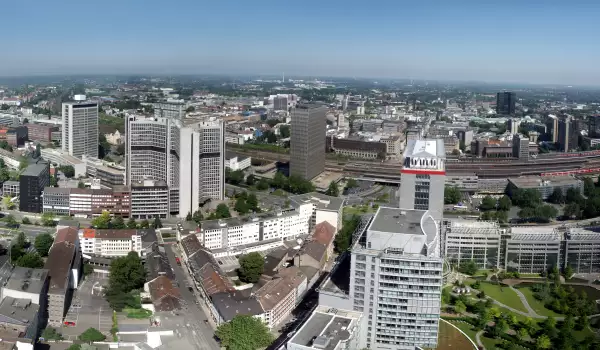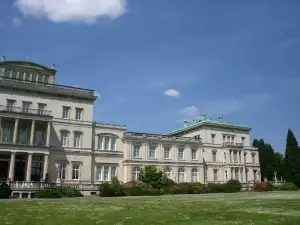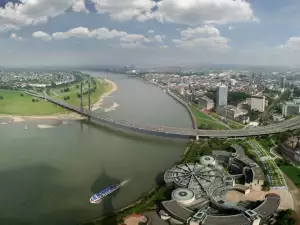Essen

Essen is one of the most interesting German cities and many visitors here remain quite surprised to learn that the town's history dates back far longer than that of megacities such as the capital Berlin and the located in the heart of Bavaria - Munich. Essen with its 600 000 inhabitants is located on 210.32 square kilometers in the center region of the Rhine-Ruhr. Known primarily as a large industrial region, it occupies the central part of the western German state of North Rhine-Westphalia. In population Essen ranks 6-7 place in Germany, along with the cities Dortmund and Stuttgart.
Because it is located in a large industrial zone, Essen is a great commercial center not only of regional importance. In the Ruhr basin is one of the largest deposits of coal, which marks the earliest and long industrial history of Essen, in which is also widespread and steel production. In the city of Essen are located 13 seats of the 100 largest German corporations.
Besides industrial, Essen is also a cultural center. Proof of this came with its proclamation of "European Capital of Culture 2010". University "Duisburg- Essen "(Universität Duisburg-Essen) should be noted here, which occurs as a collaboration between the two nearby towns - Duisburg and Essen .

In the western German city are a lot of architectural and historical landmarks as well as several world famous fairs held annually. One such example is the extraordinary event of the so-called "Essener Lichtwochen" or the international holiday market "Christmas in Essen", which are well known far beyond the city and each year attract thousands of visitors.
About 50 trade fairs each year welcome over 530, 000 guests to Essen. Undoubtedly the biggest Fair is the Essen Motor Show, which is one of the best international fairs for cars. Another interesting event is the Fair, which is the world's biggest consumer fair for gaming.
Among the main attractions of the Essen is Aalto-Theater, whose granite building impresses with its extravagant architecture. It is situated amidst green meadows of the central city Essen. The modern and harmonic structure of the theater Aalto is the work of Finnish architect Alvar Aalto. The theater was rediscovered again in September 1988 and received recognition "the most beautiful German theater since 1945". Inside the theater are regularly held evening concerts and piano recitals. The excellent reputation of Essen Philharmonic Orchestra and Ensemble lies far beyond the neighboring countries of Germany.
The oldest archaeological findings in the area is Vogelheimer Klinge, dating from 280 000 to 250 000 BC. It is a knife found in the neighborhood of Vogelheim in the north of Essen during construction of the Rhine-Herne Alteburg Castle in 1926, which you can also visit. Being located in the southern part of the city, it dates from the first or second century BC.















